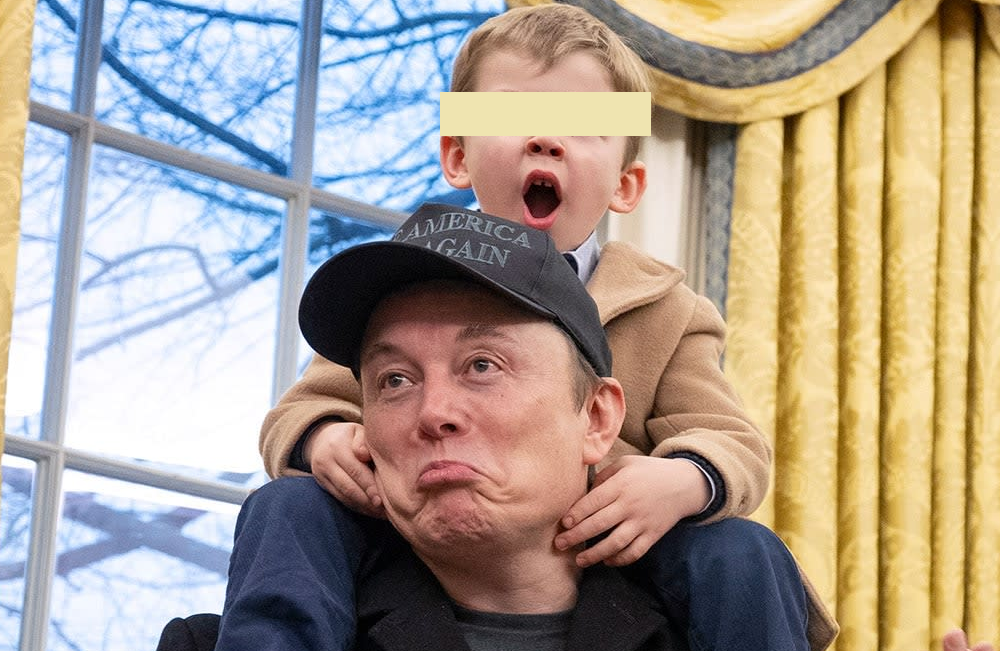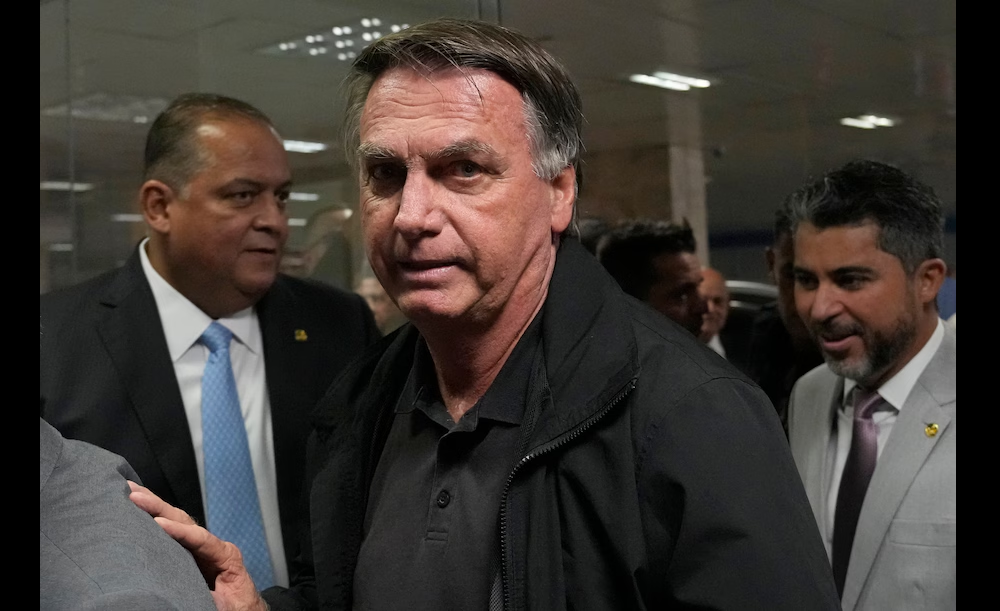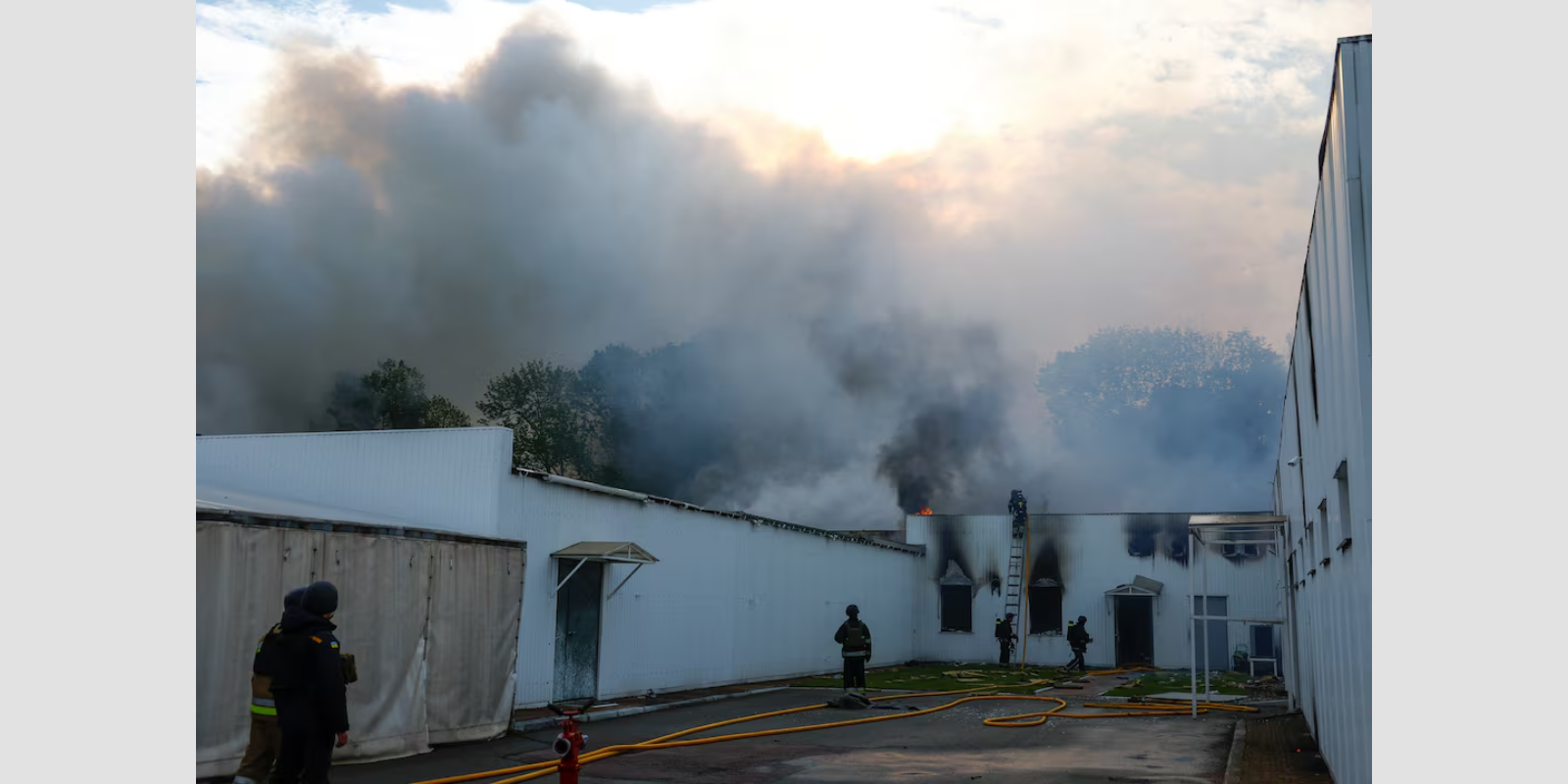Trump says he repositioned nuclear subs in veiled threat to Russia
The action came after former Russian president Dmitri Medvedev referenced the Soviet Union’s emergency nuclear strike capabilities in a post criticizing Trump.
Washington Post 01-08-2025
By David L. Stern, Robyn Dixon, Jonathan Edwards, Tara Copp and Amy B Wang
President Donald Trump on Friday said he deployed two nuclear submarines into tactical positions after online threats from former Russian president Dmitry Medvedev, escalating tensions between the two nuclear superpowers as Trump’s frustration against Moscow mounts.
Trump said on social media that Medvedev’s “highly provocative statements” led him to dispatch the submarines “just in case these foolish and inflammatory statements are more than just that.”
“Words are very important, and can often lead to unintended consequences,” Trump continued, capping an intensifying exchange between the two men, who have long been at odds. “I hope this will not be one of those instances.”
Medvedev, now deputy chairman of Russia’s security council, had referenced the Soviet Union’s emergency nuclear strike capabilities in a Telegram post that told Trump to imagine the Walking Dead, an apocalyptic television series.
Hours after the social media post, Trump said he deployed the submarines because Medvedev’s “threat” was inappropriate.
“A threat was made ... so we just have to be very careful,” Trump said Friday afternoon while leaving the White House to go to his golf club in Bedminster, New Jersey, for the weekend.
“We’re going to protect our people,” he added.
Trump on Friday afternoon did not answer a question about where he had sent the subs, but in an interview with the conservative outlet Newsmax that aired hours later he said he sent them to “the region” and that “they’re closer to Russia.”
The Pentagon would not comment Friday on the deployment of resources that typically operate in secret, and experts said it was more likely that Trump intended to send a message than propel the world’s superpowers toward armed conflict. But the rare invocation of nuclear force appeared to reflect Trump’s deepening displeasure with Russia over its continued war on Ukraine. The exchange followed what Ukrainian officials said had been the deadliest Russian airstrike on the capital city this year, and came as Trump threatens to enact steep tariffs on Moscow if it does not agree to a ceasefire within 10 days.
Trump’s post sent officials and analysts scrambling to assess the significance of the deployment. RIA Novosti, a state-controlled news agency, suggested the Russians are seeking clarity from Washington about Trump’s actions and intentions. The agency said Friday it had sent inquiries to the White House, Pentagon, U.S. Central Command and the National Security Council but had not received a response.
On Capitol Hill, Sen. Chris Coons (D-Delaware), said that he planned to ask the U.S. Navy for more information. “Why would we ever signal plans to relocate nuclear submarines?” he asked.
The Pentagon typically does not reveal such details unless doing so sends a message or deters conflict, said Mark Cancian, a retired Marine colonel focused on security at the Center for Strategic and International Studies in Washington.
The U.S. submarine fleet can conduct both cruise and ballistic missile strikes but those vessels cannot launch interceptors — so in the case of Russia’s threats, their presence would be primarily to deter or to provide counterstrike options, Cancian said, calling the president’s announcement Friday “signaling in its purest form.”
The U.S. fleet could also be positioned to counter Russian ballistic missile submarines if those moved out, but would not be able to fire and take down an incoming ballistic missile, he said.
Medvedev, who has repeatedly served as a pro-Kremlin antagonist online, first drew Trump’s ire earlier this week when responding to his accelerated ceasefire deadline, alleging on social media that he was “playing the ultimatum game” with Russia.
“He should remember 2 things: 1. Russia isn’t Israel or even Iran,” Medvedev wrote on X. “2. Each new ultimatum is a threat and a step towards war. Not between Russia and Ukraine, but with his own country. Don’t go down the Sleepy Joe road!”
Trump kept targeting Russia in posts on his social media network, deriding both India and Russia as “dead” economies early Thursday morning.
“Likewise, Russia and the USA do almost no business together. Let’s keep it that way, and tell Medvedev, the failed former President of Russia, who thinks he’s still President, to watch his words. He’s entering very dangerous territory!” Trump wrote.
On Thursday, Medvedev prodded Trump, saying that if comments from a former Russian president could cause such a “nervous reaction” from the American president, then Russia was right to approach negotiations with Ukraine on its own terms.
“And about the ‘dead economy’ of India and Russia and ‘entering dangerous territory’ — well, let [Trump] remember … how dangerous the famous ‘Dead Hand’ can be,” Medvedev added, referring to a Russian doomsday program with the ability to automatically launch a nuclear counterstrike.
Some cautioned restraint Friday, noting that Medvedev often made statements on social media widely regarded as problematic and unserious. “When you see his latest apocalyptic tweet about turning European capitals to dust, remember: this isn’t strategic communication from the Kremlin. It’s the rambling of a man drowning his terror in vodka,” said Mikhail Khodorkovsky, Russia’s onetime richest man, who is now an opposition leader living in London.
Trump has increasingly turned toward Ukraine this year as he loses patience with Russian President Vladimir Putin’s continued bombardment of Ukraine. On Friday, former U.S. ambassador to Moscow Mike McFaul on X advised him to keep his focus there. “If Trump wants to get Medvedev’s attention he should give Ukraine new weapons,” McFaul said. “Moving nuclear armed subs is the wrong approach.”
On Friday, Ukrainian officials said the death toll in Kyiv from a Russian aerial bombardment the day before had nearly doubled overnight to at least 31, as more bodies were pulled from under rubble. As the grim recovery operations continued, Germany announced it would provide two Patriot air defense systems to Ukraine in the coming days and that Berlin would be at the top of a list to receive new-model replacements from the United States.
Ukraine has pleaded with its Western supporters for more air defenses amid unrelenting Russian missile and drone attacks.
Among the dead were five children, the youngest 2 years old, and 159 were injured, Ukrainian President Volodymyr Zelensky said in a post on Telegram. He said that in July alone, Russian forces launched about 3,800 drones, 260 missiles — including 128 ballistic missiles — and 5,100 guided bombs.
Zelensky called the overnight attack on Thursday “a vile blow” and said it demonstrated that additional pressure on Moscow was needed and that Ukraine’s Western allies should tighten their sanctions regime against the Kremlin. President Donald Trump has been threatening to do just that.
“No matter how much the Kremlin denies their effectiveness, [the sanctions] are working and must be stronger — to hit everything that allows such strikes to continue,” Zelensky wrote, after receiving a report on the strike from Interior Minister Ihor Klymenko.
Trump appears ready to slap additional sanctions on Moscow in a bid to pressure Russia to accept a ceasefire. On Thursday, Trump called the airstrikes on Ukraine “disgusting” and “a disgrace,” though he questioned whether sanctions would influence Putin.
“I don’t know that sanctions bother him,” he said. “I don’t know if that has any effect, but we’re going to do it.”
The Patriot transfer to Ukraine was made possible by an agreement with the United States that Germany would be “the first nation to receive newly produced, latest-generation Patriot systems at an accelerated pace,” which Berlin would pay for, German Defense Minister Boris Pistorius said in a statement.
The delivery to Ukraine would also include “additional system components within the next two to three months,” Pistorius said.
Ukrainian officials have not commented on the German transfer. However, Patriot antiaircraft systems are highly valued for their ability to shoot down cruise and ballistic missiles, which Russian forces have been firing at Ukrainian targets in clusters, combined with waves of drones, to overwhelm Ukrainian air defenses.
Trump also has been threatening secondary sanctions that would penalize buyers of Russian oil, mainly China and India, potentially starving Russia of funds for its war machine, but so far he has refrained from imposing them, arguing this could alienate Moscow and reduce hopes of reaching a peace deal.
Russia, meanwhile, has launched deadly attacks on Kyiv and other Ukrainian cities, while grinding forward and seizing more territory in eastern Ukraine. Russia has struck playgrounds, maternity hospitals, apartment buildings, civilian buses and other civilian targets. Russia’s Ministry of Defense insists that Russia attacks military targets with “precision strikes.”
Earlier in the week, Trump tightened the deadline to 10 days from 50 days for Russia to agree a ceasefire with Ukraine or face new sanctions. Trump said that his special envoy, Steve Witkoff, would fly to Russia to meet with officials after visiting Gaza and Israel.
Witkoff has met Putin four times in solo meetings in a bid to broker a peace deal, eschewing State Department experts on Russia, and using an interpreter supplied by the Kremlin on at least one occasion. He initially appeared to credit Putin with a will to end the war in return for keeping the territory Russia has seized and shutting Ukraine out of NATO. Those hopes proved overly optimistic.
On Thursday, Secretary of State Marco Rubio said in a radio interview that senior U.S. officials were in contact with their Russian counterparts this week but made “no progress” on securing a ceasefire.
Trump has suggested that he is losing patience with Putin after phone conversations in which Putin appeared conciliatory, only to launch new airstrikes, while Ukraine has accepted Trump’s call for a ceasefire, Rubio suggested.
“And I think what bothers the president the most is he has these great phone calls where everyone … claims, ‘Yeah, we’d like to see this end, if we could find a way forward,’ and then he turns on the news and another city has been bombed, including those far from the front lines,” Rubio said.
On Friday, Putin said that any disappointments in the progress of peace talks arose from “excessive expectations.”
“Negotiations are always in demand and always important, especially if it is a desire for peace. I evaluate them positively overall,” Putin told journalists after meeting Belarusian President Alexander Lukashenko at Valaam island in Karelia, in northwest Russia.
Putin said Russia’s conditions had not changed, saying Russia needed “a lasting and durable peace on good basic foundations that would satisfy both Russia and Ukraine and would guarantee security of both countries.”
Dixon reported from Riga, Latvia. Liz Goodwin, Catherine Belton, Mary Ilyushina and Kostiantyn Khudov contributed to this report.







